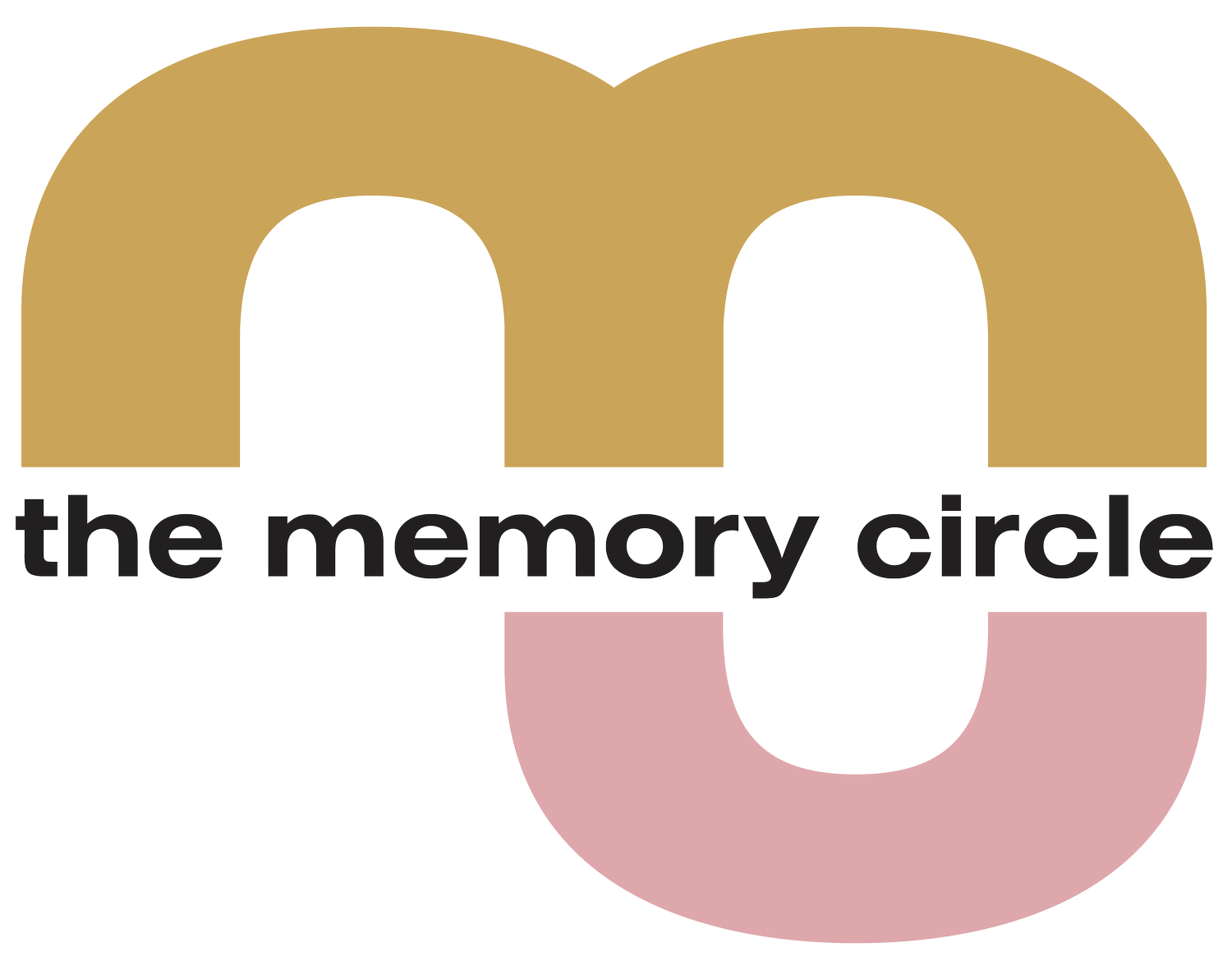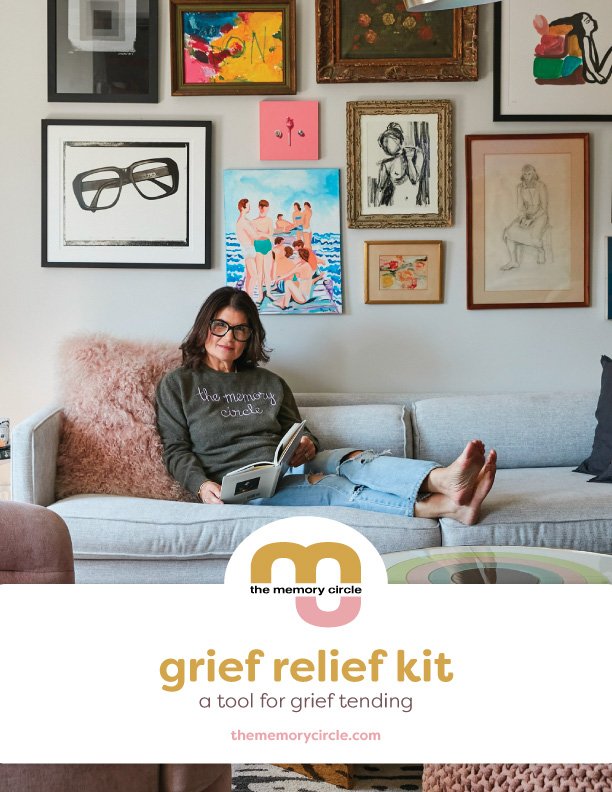My Dad was one of the original Mad Men. He worked at Sudler & Hennessey , a pioneering pharmaceutical advertising agency for almost three decades. There, he spearheaded creative teams, collaborated with the world’s top doctors, and brought breakthrough drugs to the market that would change lives and create legacies.
We would have dinner table downloads and brainstorms about the latest on his docket. What did we think about the first gel toothpaste? Samples of gooey green Aim were shared. What about deodorant marketed to teen girls called Tickle? Four collectible scents packaged in groovy dome topped and polka dotted clear casing. Sure, those appealed to us, but his work with Ethel Kennedy to support one of the first drugs on the market for breast cancer, is and was his proudest advertising moment--and now ours. Breast Cancer Awareness Week was conceived by Dad and his team with Mrs. Kennedy.
His kind Mid-Western demeaner, crafty way with words and Dad humor went far with clients. He was a beloved boss too. We longed to go to his office and cartwheel down the giant corridors and play with the 100’s of markers displayed on racks in the art department. We learned the cold hard truth about how some ads make things look bright and shiny and maybe better than they were in real life. We also learned advertising made some brands of shampoo and make up we fawned over expensive.
Our “Ad Dad” retired early in a downsizing of the agency and moved to Westchester to be closer to his first granddaughter. He soon became “Grampsy” and ordered up vanity plates for his signature silver Beetle--both instant town favorites.
Small hints at memory loss showed up in forgetting how to use or misplacing his cellphone. A “Beautiful Mind” style collection of lists upon lists displayed all of the names of kids and grandkids filled his Filofax, napkins and post-Its. “I don’t remember” became a frequent answer to our queries.
A neurological evaluation confirmed that Dad was suffering from Mild Cognitive Impairment. As we knew from the death of his mom, Grandma Marge, this could be the beginning stages of dementia.
It stole Dad as we knew him, slowly and without warning. He was good at creating round about ways of deflecting some of our awareness. He made our calls shorter, easy generalizations about the weather and the day, and quick hang ups with his signature “love you more.” He began to buy and consume sweets in epic proportion. A dementia signal we would later come to learn. We had to contact the local deli and let them know that four donuts were no longer allowed to accompany his New York Post. One day he told us he was not much of a coffee drinker. Dad had a pot brewing, or cup in hand all day long for most of our lives.
When he could no longer remember the day or date with two newspapers on his desk to tickle his recall, and got lost heading to familiar spots, we knew it was time to remove the car. This day he remembers. The freedom of zipping his Grampsy-mobile around town and frequent airport picks ups were no longer.
The neurologist prompted rapid-fire requests to recite the alphabet backwards, name the Vice President and his kids names and ages. This left him frustrated and sullen and left us with the sad realization that he needed help.
We put a care team in place. “The ladies” as he called them, gave him meds and meals, company on walks and parttime companionship. He walked out his front door into the night and onto the main road in town to a stranger’s front door. He wore a bracelet with his name and emergency contact we bought him and with its help, we were alerted that he’d be taken to the local hospital for observation.
From 24-hour care to our final decision to move him from his home to an assisted living facility that also housed an “age in place” option for memory care. Content. Comfortable. Kind. Easy. This is how they describe him at “The Club”. He asks the woman who cleans his room if he can help. His spacious and private apartment soon transitioned to a twin bed and open-door policy in memory care when he took an unexpected fall.
All four of us have expressed the deep mourning of the man that is before us. There is something magical and comforting in his still knowing we are “family” even if he can’t always place our names. The signature almond shaped “Leiner eyes” that disappear when he smiles and twinkle when he laughs are alive with knowing.
One of the greatest of lessons we have learned in this living grief, is to love what is left. We no longer ask, “do you remember,” but take opportunities to tell him stories of the Neil we know and knew and love more than the whole wide world. (He has marked his notes to us ILYMTTWWW for our entire lives.)
Last month, on the way to get a Covid vaccine, I tell him that his client was Pfizer, that he worked with them, and they created the shot he was getting. “I did not work there; they were my client,” he corrects me. The nurse asks if his name is correct on the card she has before she administers the dose and he giggles, “if it says handsome, then yes, that’s me.” He rises from his seat in the waiting area for others who are “old” he tells me.
I regale him with compliments from the staff telling us he always remembers to say “thank you” and how kind he is to all of them. “That sure sounds like me,” he agrees. I mention that it is 9/11 and before he moved, he used to place flowers on a memorial bench in town that we donated for a friend we lost. He used to take their son to soccer games when the mom needed to be with her daughter and could not be in two places at once. “That sounds like something I would do,” he reflects.
When I meet someone who has a parent with memory loss, I share our story telling idea. The director at The Club reminds staff that they work with former lawyers, teachers, politicians and yes, award winning ad execs. He encourages them to ask about their jobs and their past. My Dad can still recall advertising pitches with ease and great detail.
Meals at The Club are ordered from a menu he can choose from daily. He forgets some favorites and knows others well. Bacon and brisket recently stirred his spirit along with Dr. Brown’s Diet Crème soda. “I really don’t know,” is a new and response. This day he sits at lunch and greets his tablemates. “Hey, how is everyone today.” They know his name and 100 meals later he does not recall theirs. He lifts his glass of watered-down cranberry juice and rings out, “Cheers.” They all lift theirs to clink and celebrate like lunch is a veritable New Year’s Eve bash. The nurse tells me his table “love their cheers.” This reminds me that each day is in fact a celebration.
There is a memoir I refer to clients these days by Steve Leder called, “The Beauty of What Remains.” Love the living. Enjoy the little things. It won’t be this way forever, but for now, we love what is before us. Best of all when we part ways, we get a kiss and a “love you more.” This is only doled out to family, and that is how we know, he still knows “his people”. His sense of humor and quick wit are intact too. Extra belly laughs come for his jokes and they are more meaningful than ever.
On a recent new home purchase I made, I long to call and ask his advice. I also marvel at the adoration of his new grandson. Archer Owen, just five months old, who will proudly keep the Leiner legacy alive, and Dad’s paternal spirit. When the baby is placed in his arms all of the songs he sang to us four come right back to him. “I was visiting with my Grandson” he tells his tablemates later that week.
This disease is a crafty robber. It is a thief of time and a future none of us planned. On many days I honor my grief and the loss of the Dad I knew and needed in ways no longer accessible. On most days, I love what is left. The man before me. I take in the lessons he teaches us in the wonder and beauty of small pleasures and living in the now. These are lessons he no longer realizes he can impart, but they are imprinted on my heart for always.



